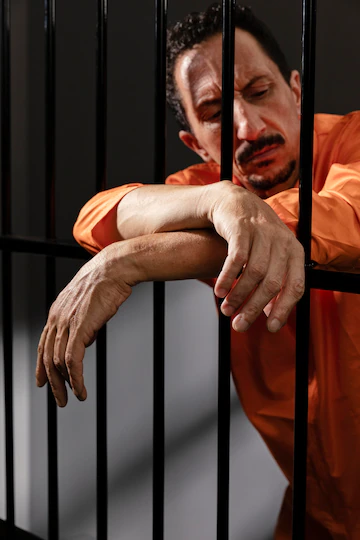Introduction: Fatherhood is a profound and transformative experience, but for incarcerated dads, the challenges and complexities of parenthood take on a whole new dimension. Separation from their children due to incarceration can have a significant impact on both fathers and their children. However, with the right support and resources, incarcerated dads can maintain a positive and meaningful connection with their children. In this article, we will explore the importance of supporting incarcerated fathers, the challenges they face, and the benefits of fostering and maintaining their role as active and involved dads.
- Recognizing the Importance of Fatherhood: Fatherhood is a vital role in a child’s life, even in the face of incarceration. Maintaining a connection between incarcerated fathers and their children is crucial for the well-being and development of both parties. Research has shown that involved fathers contribute to better social, emotional, and academic outcomes for their children. By recognizing the importance of fatherhood, society can work towards providing support systems that help incarcerated dads fulfill their parental responsibilities.
- Overcoming Challenges: Incarcerated fathers face numerous challenges in maintaining their role as parents. Distance, restricted visitation rights, and limited communication options hinder their ability to actively engage in their children’s lives. Additionally, feelings of guilt, shame, and the impact of incarceration on their mental and emotional well-being can further complicate the father-child relationship. To support incarcerated dads, it is essential to address these challenges through targeted interventions and initiatives.
- Parenting Programs and Education: Incarcerated fathers benefit greatly from parenting programs and educational opportunities that are tailored to their unique circumstances. These programs provide fathers with knowledge and skills in child development, positive discipline, communication, and conflict resolution. By equipping incarcerated dads with effective parenting techniques, they can maintain meaningful connections with their children and play a positive role in their upbringing.
- Strengthening Family Bonds: Maintaining strong family bonds is essential for both incarcerated fathers and their children. Visitation programs and family-oriented activities within correctional facilities create opportunities for face-to-face interactions. Such initiatives allow fathers to actively participate in their children’s lives, fostering a sense of connection and normalcy amidst the challenges of incarceration. Moreover, providing support to the families left behind, such as counseling services and access to community resources, helps them navigate the difficulties of separation and maintain a sense of stability.
- Communication and Technology: Advancements in communication technology have provided new avenues for incarcerated dads to stay connected with their children. Phone calls, video chats, and email correspondence enable regular and meaningful interactions. By utilizing these communication tools, incarcerated fathers can be present in their children’s lives, offer guidance, and provide emotional support. Additionally, facilitating correspondence through letters and creative projects allows fathers to maintain a tangible connection with their children, fostering a sense of love and belonging.
- Reintegration and Aftercare Support: Preparing incarcerated fathers for reintegration into society is crucial for their successful transition back into the role of active dads. Providing comprehensive reentry programs that address employment, housing, education, and mental health services is vital. These programs not only support fathers in rebuilding their lives but also contribute to their ability to provide stability and support for their children. Aftercare support is equally important, as it assists fathers in maintaining their parental responsibilities and establishing a positive relationship with their children post-release.
Conclusion: Supporting incarcerated fathers in their journey of fatherhood is essential for their own well-being and the overall development of their children. By recognizing the significance of their role, providing parenting programs, strengthening family bonds, utilizing communication tools, and offering comprehensive reentry and aftercare support, society can help incarcerated dads maintain positive relationships with their children. It is through these efforts that we can create an environment that supports the healing, growth, and successful reintegration of incarcerated fathers, ultimately contributing to the well-being and resilience of their families.










